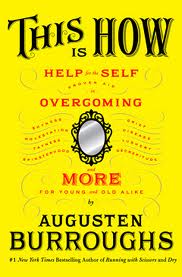 A self-help book for the self-help averse from Augusten Burroughs. Here’s a chunk, excerpted at TNB Nonfiction:
A self-help book for the self-help averse from Augusten Burroughs. Here’s a chunk, excerpted at TNB Nonfiction:
Canadian researchers found those with low self-esteem actually felt worse after repeating positive statements about themselves.
They said phrases such as “I am a lovable person” only helped people with high self-esteem.
The study appears in the journal Psychological Science…They found that, paradoxically, those with low self-esteem were in a better mood when they were allowed to have negative thoughts than when they were asked to focus exclusively on affirmative thoughts…”Repeating positive self-statements may benefit certain people, such as individuals with high self-esteem, but backfire for the very people who need them the most.”
And it was all so perfectly clear. No wonder I had found that woman so offensive. Sometimes things feel that bad.
Sometimes you just feel like sh!t.
And telling yourself you feel terrific and wearing a brave smile and refusing to give in to “negative thinking” is not only inaccurate -dishonest- but it can make you feel worse.
Which makes perfect sense. Because if you want to feel better, you need to pause and ask yourself, better than what?
Better than how you feel at this moment, perhaps.
But in order to feel better than you feel at this moment, you need to identify how you feel, exactly.
It’s like this: if California represents your desire to “feel better,” you won’t be able to get there -no matter how many maps you have- unless you know where are starting from.
Finally, trained researchers in white lab coats with clipboards and cages filled with monkeys had demonstrated in a proper clinical setting what I myself had learned several years earlier in a rehab setting: affirmations are bullsh!t.